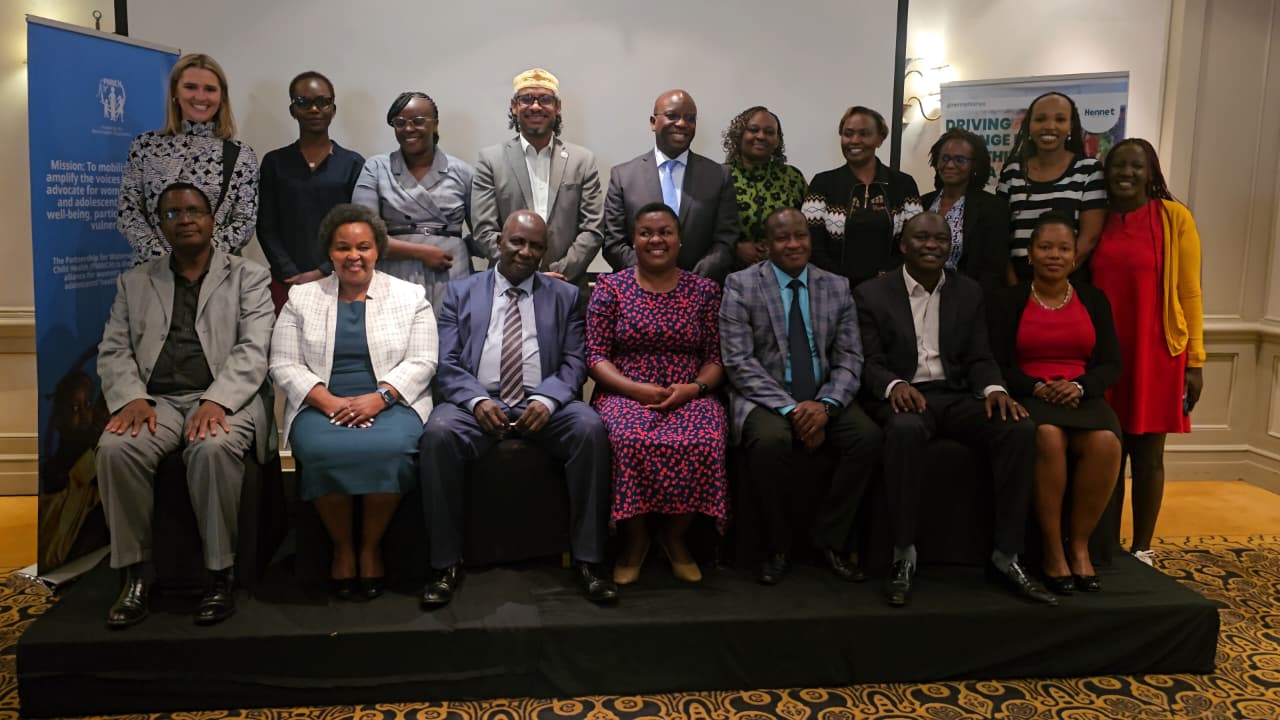+254797 813499

Posted by OAY Kenya on 23-Sep-2025
September 2025 marked an important moment for Kenya’s journey in advancing health especially towards ending preventable maternal and child deaths. A series of three high-level engagements in Nairobi brought together national leaders, county governments, civil society, and youth advocates to accelerate progress in Advocacy and Reproductive, Maternal, Newborn, Child, Adolescent Health and Nutrition (RMNCAH+N).
The month began with the dissemination of the Kenya Health Advocacy Guideline (2025) on 10–11 September at Clarence House Hotel, led by the Ministry of Health’s Division of Health Promotion and Education.
Health advocacy being a critical component of Kenya’s Primary Health Care (PHC) approach and a key enabler of Universal Health Coverage (UHC). Effective advocacy ensures that public health priorities receive the necessary attention, resources, and policy support, leading to improved health outcomes for all Kenyans.
The guideline, endorsed by the Ministry, seeks to standardize health advocacy efforts and strengthen promotion across all levels of governance. Present stakeholders including OAY and the SUN Youth Network committed to cascade the guideline to county and community levels, ensuring consistency, evidence-based messaging, and stronger alignment of advocacy work.
On 16 September, the High-Level Policy Dialogue on RMNCAH+N was hosted by PMNCH and HENNET.
Lawmakers, county leaders, women representatives, civil societies and other key stakeholders including Hon. Dr. James Nyikal (Chair, Parliamentary Health Committee) called for urgent reforms to reduce Kenya’s maternal mortality rate of nearly 6,000 deaths annually and tackle adolescent pregnancy, which affects 15% of girls before age 19.
The dialogue emphasized the importance of reliable, disaggregated data, male involvement in maternal and adolescent health, and stronger county accountability. County leaders from Kisii, Nandi, Kisumu, Uasin Gishu, Trans Nzoia, and Baringo Counties pledged to advance the shared vision of “a Kenya where no woman dies giving life, and every child survives and thrives.”
The momentum carried into 17 September at The Heron Hotel, where civil society organizations including OAY, HENNET, Countdown2030, and PMNCH convened under the banner “Civil Society Action for Every Woman, Every Child, Everywhere.”
The gathering highlighted the human face of statistics: 355 mothers die for every 100,000 live births, and 21 newborns are lost for every 1,000 births.
The team was introduced to PMNCH CAAP Initiative (Collaborative Advocacy Action Plan) with an emphasis on the 5 CAAP goals and priorities and the important role that civil societies play in attaining them.
The 5 CAAP Initiative goals:
1. End preventable Maternal, Perinatal, Neonatal and Child Mortality.
2. Strengthen adolescent and youth-responsive health systems and end teenage pregnancy.
3. Reduce unmet family planning needs.
4. Increase domestic financing for health and RMNCAH+N at national and county levels.
5. Strengthen and disaggregate RMNCAH+N data.
Participants demanded greater transparency in Kenya’s health data by 2028 and reinforced the call for accountability, dignity, and justice in RMNCAH+N programming.
Across all three events, a clear message emerged: progress requires stronger collaboration, standardized advocacy, accountable leadership, and community-driven solutions. For OAY and its partners, this is not just about numbers it is about lives, dignity, and ensuring no woman, child, adolescent and youth is left behind.
By Sandra Chepkogei, program officer OAY-Kenya
0 Comments